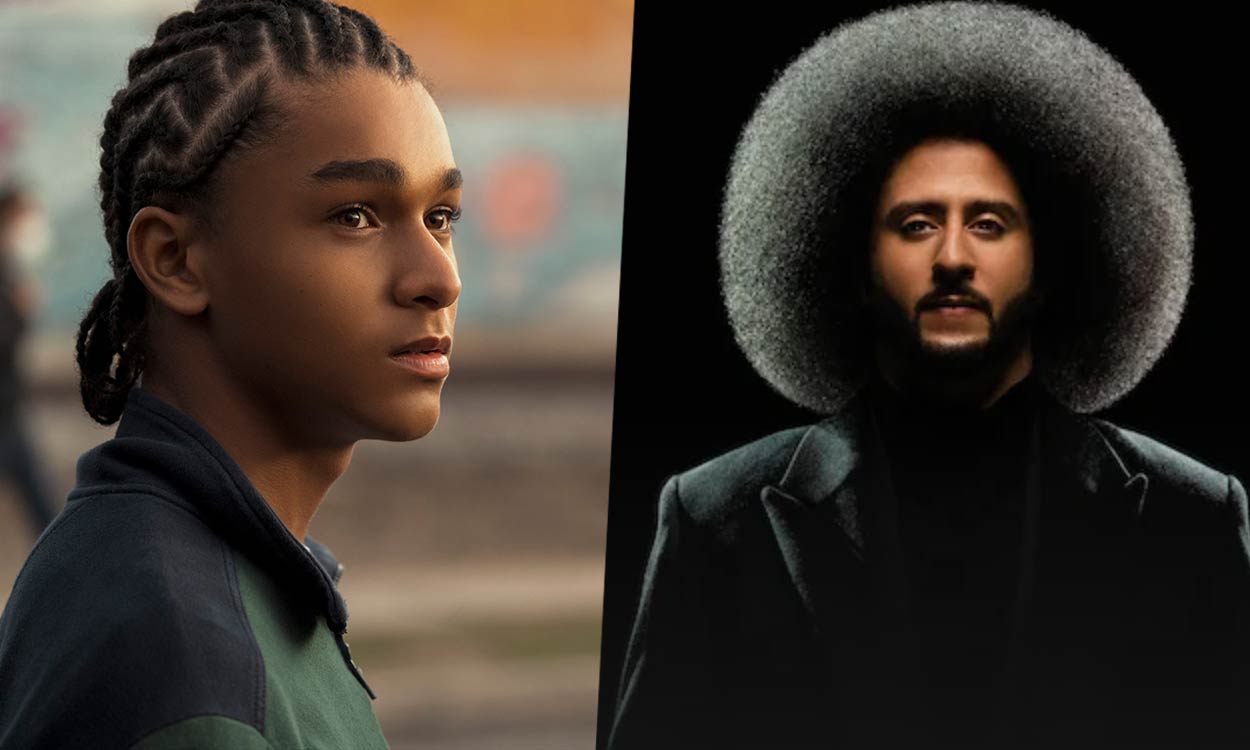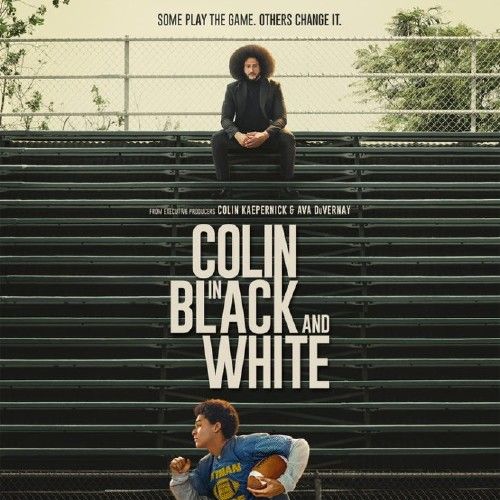Colin in Black and White

If you’re like me, you’re always on the lookout for the next great show. Well, look no further than Colin in Black and White, the Netflix limited series. Ava DuVernay has woven together the inspiring and emotional story of how young Colin Kaepernick not only became a quarterback, but became THE quarterback who would kneel in protest against inequity and racism – and where his strength came from to withstand the massive backlash against him. By the way, he’s still not quarterbacking for any NFL teams, and has received a private, but probably, massive settlement for being blackballed.
The show picks up Kaepernick’s life in middle school as he dreams of becoming a quarterback. As he grows and shows his baseball talent, he becomes one of the most sought after pitchers in the country. But his heart is in football and he will not give up his dream of being an NFL quarterback. Along the way, young Colin gradually comes to understand the racism he’s up against – as Colin reflects, “I assumed my (adoptive) parents’ privilege was mine. I was in for a rude awakening.”
Of particular interest to me is DuVernay’s segment on microaggressions. It shows how important it is to listen for the hidden message. When is a compliment not a compliment? When the hidden message says that you’re the exception to an unspoken judgment against people like you…. For example, a boss says to a new hire, “We’re happy to have you. You’re articulate, well-spoken, and clean”. While this statement may be well-intentioned, the recipient of the “compliment” is left to feel that they are the exception to that person’s assumption that the rest of “your people” are dangerous, dirty, illiterate… This is a classic microaggression and it’s not just a small slight. It has a very real impact on psychological, emotional and mental health.
As Derald Wing Sue teaches in the our eLearning course, “Although any one microaggression may appear small, trivial, harmless or insignificant, they are constant and cumulative. For a person of color, they occur from the time you awaken in the morning until you go to sleep at night, from the time you are born until you die. Maya Angelou likened microaggressions to “death by a thousand cuts.” The old adage that “Sticks and stones may break my bones, but words will never hurt me” is untrue when applied to microaggressions.”
As a filmmaker and a facilitator of our Workshops via Zoom on diversity, equity and inclusion, I’m taken with how deep the message can go when it’s carried by a story. That’s why I created the Disarming Microaggressions course to include stories that Dr. Sue has gathered over his 40 years of research. People will forget bullet points. They’ll remember stories. It’s the emotional impact. And that’s motivated me in the production of all my courses. But Ava DuVernay is on another level and I will keep striving to bring that level of emotional authenticity into the characters and scenes I write.
Did I mention the show is good? Fun? It really is entertaining. Not just a documentary teach session. I was often on the edge of tearing up if not all the way gone. The way young Colin interacts with his white adoptive parents. They love him and support him but are blind to what he faces as a young black man. They seem to be colorblind and quite often, we see Colin’s face and can hear his heart asking ‘why don’t you see me and what I’m going through?’ For me, one of the most powerful moments is when today Colin writes a letter to his younger self. It’s beautiful, loving, and quite a moment. I’ve written a letter like this. But unlike me, today Colin actually steps into the scene and leaves it for young Colin to find. Wow. Tears. His last message to his younger self, and to all of us, “To the underestimated, the overlooked and the outcast, Trust Your Power!”


